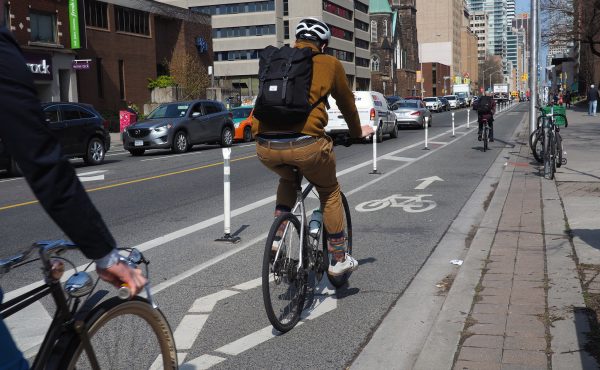
The following is a reprint of my Eye Weekly Psychogeography column looking back on the Rebel Mayor twitter character and some thoughts on how social was and wasn’t used during the Toronto election.
![]()
I am Rebel Mayor. Or I was. About a year ago, I created a Twitter account called @rebelmayor that was positioned as the reincarnation of William Lyon Mackenzie, Toronto’s first mayor. He was a fun guy. He was mayor in 1834, and later he instigated the Rebellion of 1837, a failed attempt to overthrow the wealthy elites that ran the city. Elites, downtown or otherwise, were a problem 150 years ago, too. It seems Toronto is the same as it ever was.
My character attracted a lot of attention during the mayoral campaign — media and political types followed and responded publicly and hung on Rebel Mayor’s every word, and eventually The Globe and Mail made a big deal of unmasking me after the election was over. The Rebel Mayor version of Mackenzie, the character I built, had come back to Toronto to run for mayor in 2010 because he was angry. And this was the angry election, so guys who marched down Yonge Street with torches and muskets were right at home. He tweet-campaigned his way around Toronto for a year until he packed up his hybrid Prius on November 5 and drove out on the QEW towards Buffalo (where he fled in 1837). The real election wasn’t won or lost on social media, but there was a lot going on, and the Rebel Mayor candidate was a fun way to react to it all as it happened.
Out in Calgary, urbanist mayor Naheed Nenshi’s dominance of social media (Twitter and Facebook) was cited as one key reason for his win. The social media experts (those carpetbaggers of the internet age) say this kind of “soft influence” helps “plant the seeds” for a campaign, and gets people talking and sharing. Seeds were certainly planted in Toronto, but none had the same effect on election day. All the major candidates used social media, but Rob Ford’s win was an old-fashioned phone-without-a-modem win: robo-calls and telephone town halls.
Still, all indications suggest that social media will define the way we communicate even more in the future. So the next election may play out much more on Twitter and Facebook and whatever radically different — and advanced — platform comes along next. But even now, social media was where the emotional story of the election played out for many people, especially in deciding who to vote for. People I didn’t think were political or politically minded were posting their feelings and ideas about strategic voting and making passionate cases for voting one way or the other. Twitter and Facebook were porous, virtual town halls where values were figured out and debated.
As for Rebel Mayor, creating this character in secret, and maintaining him for so long, told me a lot about how social media works. The most important lesson was about how trust can be created. Rebel Mayor tweeted jokes, both self-deprecating and at the expense of others, but established early on that he wouldn’t be cruel and was a kind of court jester. This election was serious and long and sometimes mean but, as Adam Vaughan said four years ago when he was first running for council, if you can’t have fun doing it, it isn’t worth doing.
Was Rebel Mayor entertaining? That’s for other people to decide, but inhabiting the character and bantering publicly with Torontonians, well-known or not, was way too much fun. Even in the early weeks, both politicians (elected and running) and various media folks were trading witticisms with the character, and sometimes even sending private, direct messages. Nothing top secret — just jokes and asides — but they were playing along. Nobody knew who was behind Rebel Mayor — it could have been a crank or, worse, a political enemy. Yet he appeared trustworthy enough to open up to, and the long serious haul seemed to beg for this kind of outlet. We like living here; why shouldn’t our elections be fun?
Another reason Rebel Mayor resonated, I think, is because he inhabited Toronto, and Toronto matters to people. Rebel Mayor’s tweets were often set in Toronto’s public spaces, places people could relate to, maybe even feel some ownership of. Rebel Mayor also made historical references (he had a loose interpretation of history sometimes) — this city has a rich history, from Victorian times right up to the present — to mine for fun details and drag them into contemporary life.
In the end, doing Rebel Mayor and watching the rest of the election unfold on my computer screen made me excited about civic engagement. There was some yelling (OK, a lot of yelling), but there was a lot more smart debate. In four years, our technological connections to each other will be even deeper — let’s hope that engagement extends more broadly across Toronto than it does now.
» Shawn Micallef tweets at @shawnmicallef

